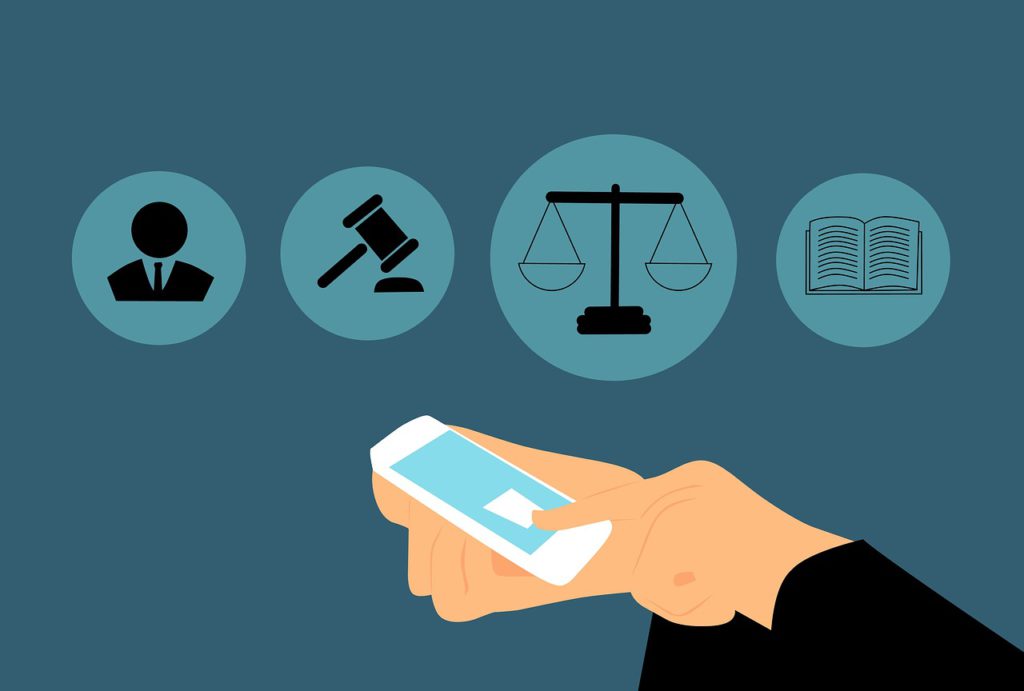Technology law, as the name suggests, is the body of law that governs the use of technology. It is an area of law that oversees both public and private use of technology. A technology lawyer is proficient with this aspect of the law, and uses it to help her client.
Due to the rise of technology as a whole, the demand for good technology lawyers has also risen exponentially. Global companies such as Netflix and Alibaba are the biggest recruiters in this line of work.
The majority of lawyers work in private and corporate legal offices. Some do work for central and state governments, but they are a minority. Most technology lawyers work full time and many work more than 40 hours a week.
Step-by-step guide to become a Technology Lawyer
- Take any stream you want in class 11th. Students from all streams can become technology lawyers.
- Score more than 45% marks in your board exams, as this is an eligibility criteria for CLAT.
- Give CLAT and LSAT. Score well. (LSAT is used by some private universities and colleges)
- While in college, try to get internships with law firms which offer services in TMT (Technology Media Telecom) teams. Take a look at the resources section down below to see how you can do that.
- Build the habit of being updated on all trends in technology. This will help you when you land a job.
- Apply to work in all the firms that belong to the TMT category. You can try using LinkedIn and other job portals, but hiring is mostly done through reference in this industry.
Salary of a Technology Lawyer in India
Starting salary would be around 35000 rupees per month. But salaries rise exponentially in this field as you get experience. You can expect to have a monthly salary around the 2,00,000 mark after 5-6 years of working.
Job Profile (A Day in the life of a technology lawyer)
Your main responsibility would be to assess new technologies and services developed by your clients to see if they are compliant with the law and regulatory framework. If not, you would be providing suggestions to clients to make changes to their service so that it fits in the regulatory framework without disturbing their business model as much as possible.
There are no fixed hours in this profession. You may be working 12 hours a day. Also, you need to have an in-depth understanding of Indian IT Law (Information Technology Act) as well as domain specific laws (RBI Regulations for fin-tech, IRDA regulations for insure-tech, SEBI regulations for invest-tech, DoT regulations for communications technology etc.)
You need to track how Indian policy makers are considering changing tech policies and how that will impact the products and services that your client offers. For instance, most technology lawyers closely track the data protection laws as they have a huge effect on business models. This is even more true in the case of technology lawyers.
You will also be closely following TRAI consultation papers for any changes in communications law and policy. Where there is no law (cryptocurrency, for example), you would advice clients on how to mitigate risks as much as possible possible to stay on the good side of the regulator.
Since you would most likely be working with one specific company, you need to be a team player. Lawyers work in a hierarchy, that is, you would have people under you and people above you.
You will also be drafting agreements for your clients. These could be IP Licensing agreements, Software Services agreements, terms and conditions, privacy policies etc. (the fine print that you skip on every site lol). As a lawyer, you would be required to know how to draft basic contracts, but you will typically be dealing with technology-related contracts.
Degree
Yes, a degree is required. Go for an integrated course (BA LLB) after class 12th.
Recommended Colleges
The various NLUs in our country are the premier colleges for making a career in technology law.
One thing to love about being a Technology Lawyer
“Intersection of law and technology . You get to work with technology from a non-technical perspective, but it’s a totally unique one.”
One thing to hate about being a Technology Lawyer
“The hours. Lawyers are not subject to labor law so no guaranteed leave.”
Resources and Tips
- SpicyIP is the definitive website for intellectual property law in our country. So, make sure that you are familiar with it.
- MediaNama website is also a wonderful resource.
- Track LegallyIndia and Bar and Bench to see which firms have TMT Practice
- Take a look at LawSikho’s YouTube channel to get an overview of things from an Indian context.
Similar Occupations
Data Scientist, Journalist, Accounting Analyst
Special thanks to Jeremy for his valuable contribution in the making of this article.
